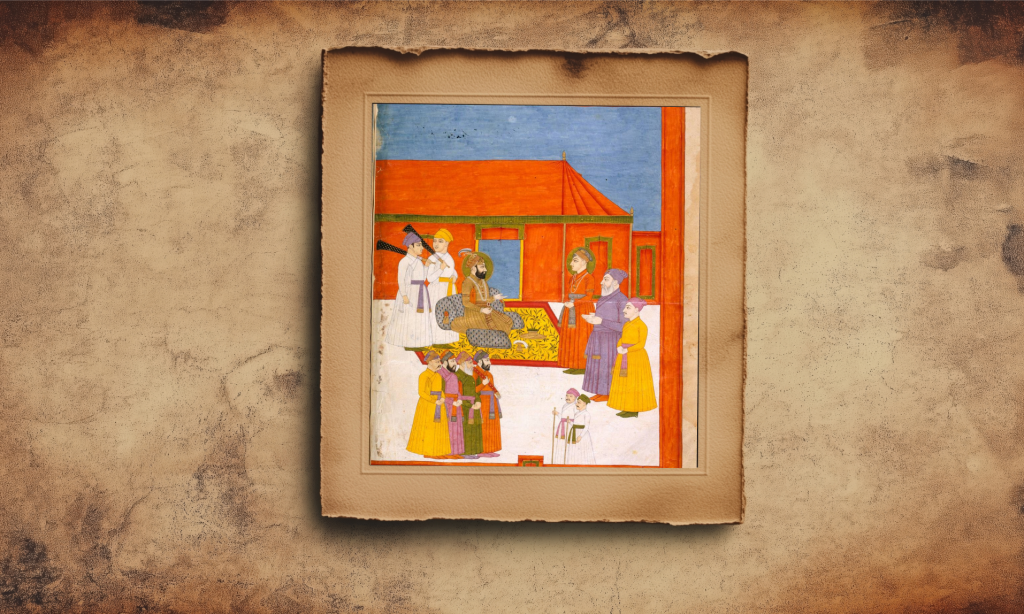Explore the memoires of Mirza Mubarakullah Wazih capturing Mughal history from 1707-1714, including the Battle of Lohgarh, in this Persian manuscript.
FATEH SINGH (d. 1716), an army commander under Banda Singh Bahadur, who was appointed administrator of Samana after the town was occupied by the Sikhs in 1709. Fateh Singh participated in several of Banda Singh`s battles against the Mughal rulers. In the battle of Sirhind fought at the nearby village of Chappar Chiri, Fateh Singh killed Nawab Wazir Khan, the faujdar of Sirhind. He was taken prisoner at Lohgarh in December 1710 and, after several years in jail, was executed in Delhi in June 1716 along with Banda Singh and his other companions.
Explore the Tarikh-i-Muzaffari, a Persian manuscript by Muhammad Ali Khan Ansari documenting the Indian Timurides and later Mughals. Rich in Sikh history.
FATUHAT NAMAH-I-SAMADI, an unpublished Persian manuscript preserved in the British Library, London, under No. Or. 1870, is an account of the victories of `Abd us-Samad Khan. Nawab Saifud Daulah `Abd usSamad Khan Bahadur Diler Jang was appointed governor of the Punjab by the Mughal Emperor Farrukh-SIyar on 22 February 1713, with the specific object of suppressing the Sikhs who had risen under Banda Singh commissioned by Guru Gobind Singh himself, shortly before his death, to chastise the tyrannical rulers of Punjab and Sirhind.
Explore the history of Tatt Khalsa, the true Khalsa faction in the Sikh schism after Guru Gobind Singh's era. Discover its impact on Sikhism.
Discover the brave tale of Gulab Singh Bakhshi, a converted Sikh who sacrificed himself to save Banda Singh in the siege of Lohgarh in 1710.
Explore the political history from Aurangzib to Muhammad Shah, with insights into Sikh revolts led by Banda Singh Bahadur. Discover this rare manuscript's saga.
Explore the social and economic life of Punjab in 1854 with Ibratnamah, a rich Persian account of its history, culture, and the rise of Sikhism.
ABD USSAMAD KHAN (d. 1737), governor of Lahore from 1713 to 1726, a descendant of the Naqashbandi saint `Abdulla Ahrar, a great grandson of Khwaja Baki of Baghdad, was born at Agra when his father, Khwaja `Abd ul-Karim Ansari, had come out with his family from Samarkand on a tour of India during the reign of Emperor Aurangzib. When Samad Khan was two years old, his parents returned to Samarkand where he passed the early years of his life and where he attained the office of Shaikh ul Islam. Soon thereafter he came to India obtaining appointment at the court of Aurangzeb. He served for many years in the Deccan without attracting much notice.
Discover Kahn Singh's legacy as a key figure in Sikh history, resisting Mughal forces alongside Banda Singh Bahadur in early 18th-century Punjab.




